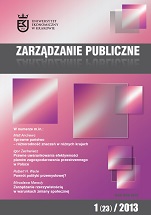Return of industrial policy?
Keywords:
industrial policy, neoliberalism, firm networks, middle-income trap, World BankAbstract
For the sake of freedom, economic growth and poverty reduction the state in market economies should limit itself to regulating markets and (sometimes) correcting “market failures”. This neoliberal conception has been the nearconsensus for the past two to three decades in the West and in western-led international organizations like the World Bank. But as of recently the consensus has been challenged by circumstances with which it cannot contend, notably the Great Western Slump which started in 2008. Yet even as the narrative in Europe shifts away from emphasising the need for “austerity”, emphasising instead the need for “growth”, the measures invoked to promote growth mainly conform to the long-established neoliberal consensus, which are entirely consistent with the “austerity” agenda. The article spells out key ideas behind the neoliberal consensus – in particular, its rejection of industrial policy. It then argues that the US government has long practiced – below the radar, and to good effect -- a hitherto little noticed type of industrial policy focused neither on the individual firm nor on the geographic region but on networks of firms, and that a (small) change in the American normative climate has occurred post 2008 in favour of a government steering role in markets. Moreover, some middle-income countries, with manufacturing sectors shrinking in the face of East Asian competition, have recently shown renewed interest in industrial policy. Finally, parts of the World Bank have recently begun to operationalize industrial policy, under the banner of “building competitive industries” (industrial policy by another name), as has not been the case since the mid 1980s. The combination of these several forces may herald the emergence of new norms in favour of a more “developmental” role of the state, at least in “dependent market economies” such as those on the European periphery.



